Alice Springs Town Council calls on AFLNT to play football in remote communities
Alice Springs Town Council has doubled down on its decision to bar football from its sporting ovals, calling on the sport’s peak body to take the game to community.
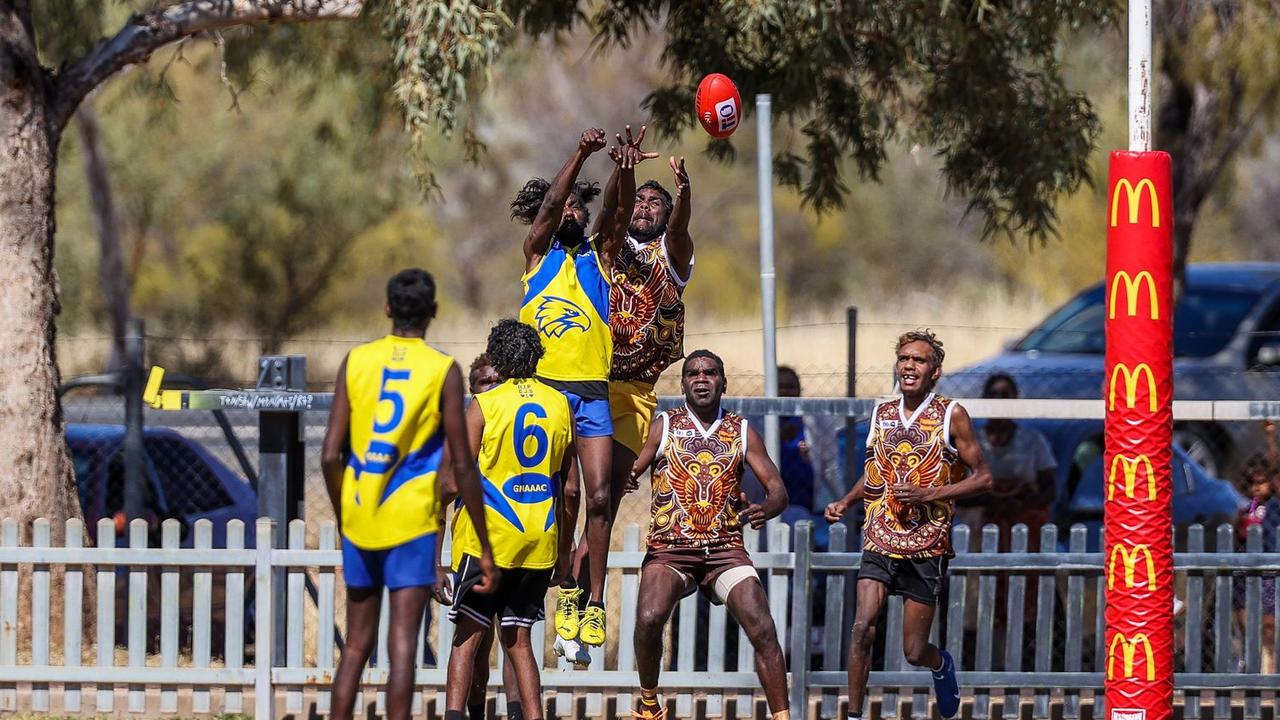
Alice Springs Town Council has doubled down on its controversial decision to bar a Central Australian community football competition access to its local sporting grounds for the 2023 season.
The council was concerned anti-social issues in Alice Springs would be increased with hundreds of fans and players coming to town for games this year.
In a joint statement, the council, Lhere Artepe and the Combined Aboriginal Organisations of Central Australia said football undeniably had a positive impact on young people in the Red Centre and remote communities, helping them engage them in education.
However, they said those aims “simply do not occur if community football is not played in communities”.
“Football is a powerful tool in Central Australia,” the group said in the statement.
“It has the capability to have a positive impact on the lives of young men and women, both in Alice Springs and throughout remote communities.
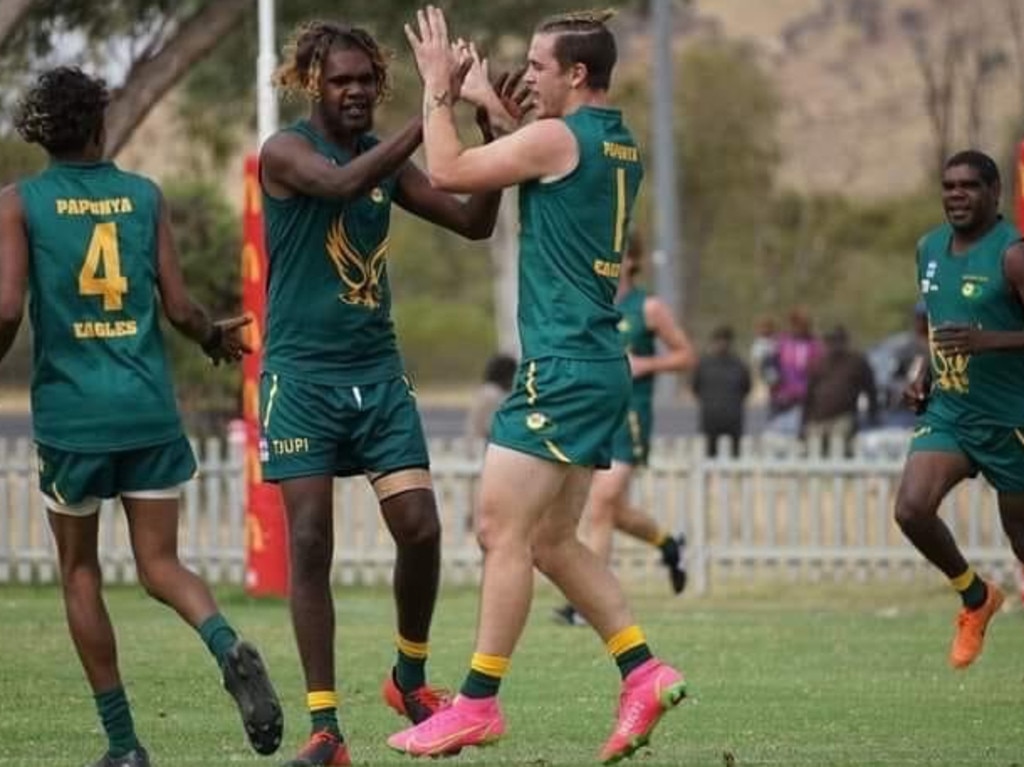
“(We) stand together in the belief (the competition) must be played in remote communities ... in the belief that football in remote communities would significantly improve remote economies by keeping money in community.
“It would create jobs in the way of umpires, match day officials and amenity providers and it would result in an increased participation in education.”
The group said Alice Springs was going through “perhaps one of its most challenging times in recent memory”.
“A consistent influx of families from community to watch football results in overcrowded houses, children becoming disengaged with education and an unsustainable strain on key services in Alice Springs,” its statement read.
“As a community, we need a chance to catch our breath.”
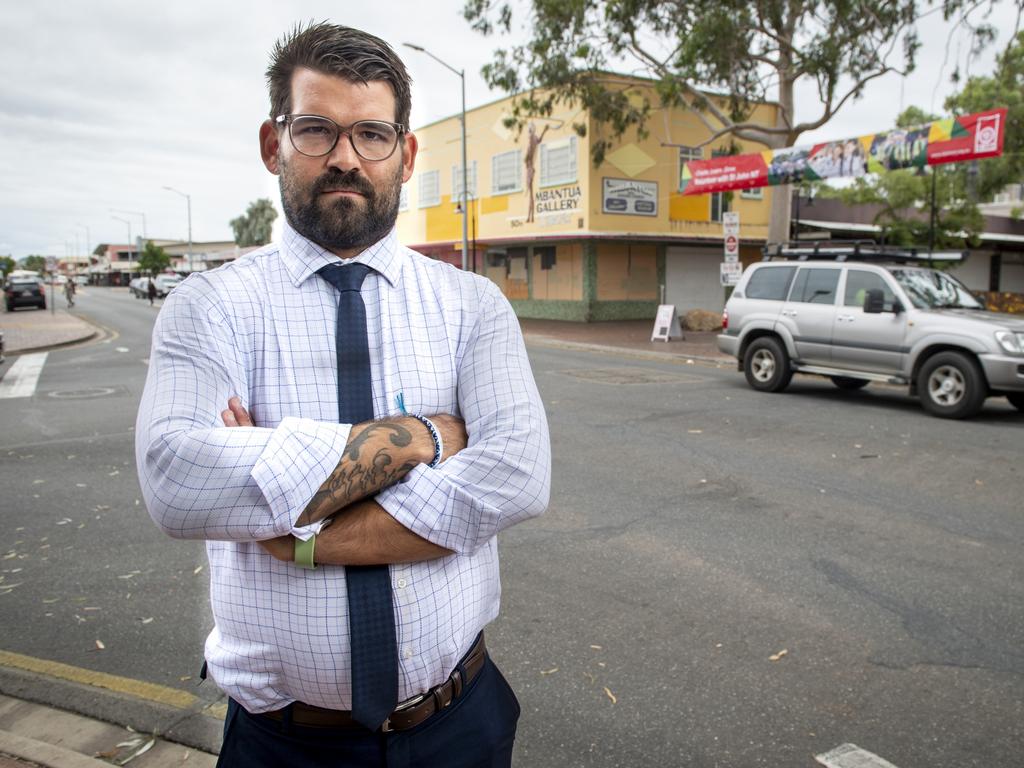
The group stated there had been a lack of progress with playing football in remote communities, despite it being a “key strategic objective” in AFLNT’s own 2018 strategic plan.
It also said the peak body’s Remote Project Initiative stated remote-based football allowed players to play without the “potential distractions of urban locations”.
“This discussion is not new,” the statement read.
“CAO penned a letter to AFLNT in December of 2022 calling for AFLNT to support a
remote competition in 2023.
“This letter details the lure of football in Alice Springs was pulling young leaders away from communities and led to a lack of connection with country.
“It has become clear that without a push, AFLNT have no intentions of scheduling community football in communities.
“We stand firm in the belief that AFLNT have an obligation as socially responsible citizens to host the 2023 season in remote communities.”
In a statement to this publication, an AFLNT spokeswoman said the league would continue to have ongoing discussions with all key stakeholders, including the council.
“(We are) working through fixturing modelling for the Central Australian Football League,” the spokeswoman said.
“This work factors in potential scheduling in communities where safe and practical, as well as Alice Springs, in line with the current license agreement between AFLNT and (the council) for Traeger Park, which is due to expire in 2025.”
Alice Springs players gutted by potential pausing of community comp
The potential shutdown of an Alice Springs community football competition has left scores of players with “nothing to look forward to”, a shattered club stalwart says.
The Central Australian Football League’s community competition faces an uncertain future in 2023 after Alice Springs Town Council barred access to its grounds.
The council is concerned holding the competition would create more social problems in a town already battling rising crime.
Peak body AFLNT is currently negotiating with the council and local stakeholders about where games could be held with the season fast approaching.
However, Alice Springs resident, junior coach and Papunya player Braydon Wiley, 23, said many of his teammates were upset by the council’s decision.
“Once that news hit, everything just stopped,” Mr Wiley said.
“There’s nothing to look forward to.
“Community footy for blokes, it’s more important than watching AFL.
“Community footy’s where it’s at, it’s where the excitement is at. It’s just a shame.”
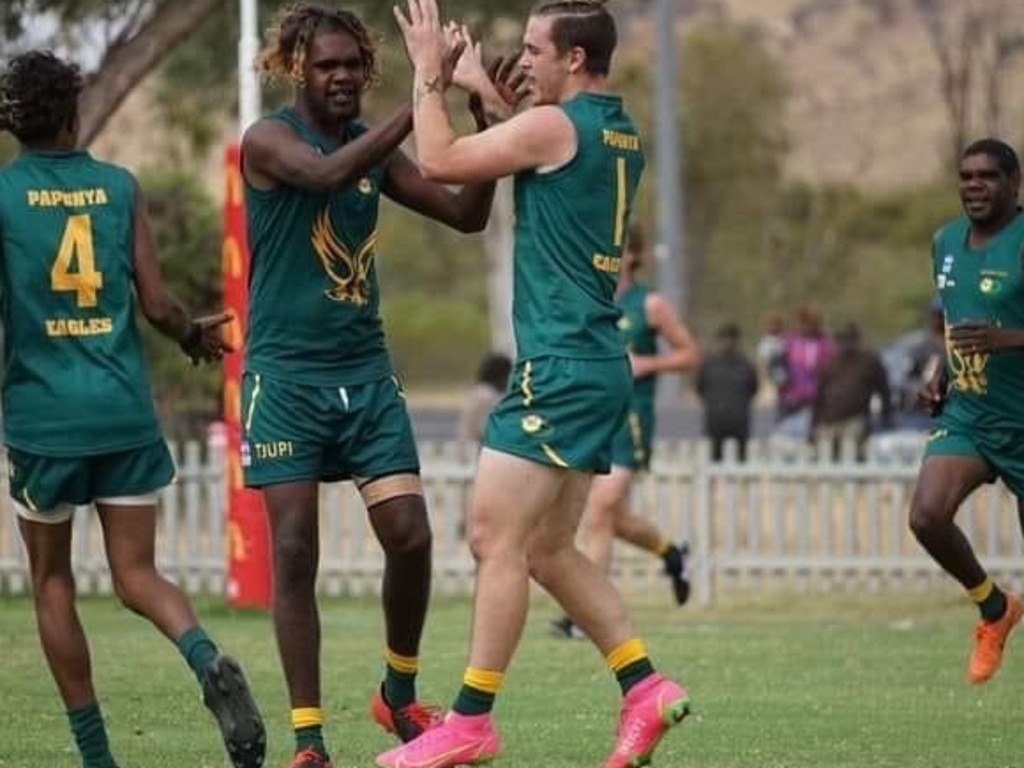
Mr Wiley said the decision to bar footy from local grounds was extremely disheartening, believing sport was part of the solution not the problem.
“I won’t swear even though I’d like to, it’s pretty disappointing, pretty disgusting,” he said.
“Look at all the crime that’s going on.
“There’s no footy on. It’s got nothing to do with the footy.
“All these kids running amok in town, they’re all town kids. They’re not footy players.”
Mr Wiley, who has played in the community comp since his mid teens, said it was another blow for player development after the Under 18 community competition was cancelled last year.
“(Barring ground access) will affect the whole league,” he said.
“Community blokes, they look forward to playing in the (senior men’s) town comp, they also want to represent their home.
“Town clubs will start to feel the pressure of players dropping off.”
However, he did not deny the competition had a history of problems with violence.
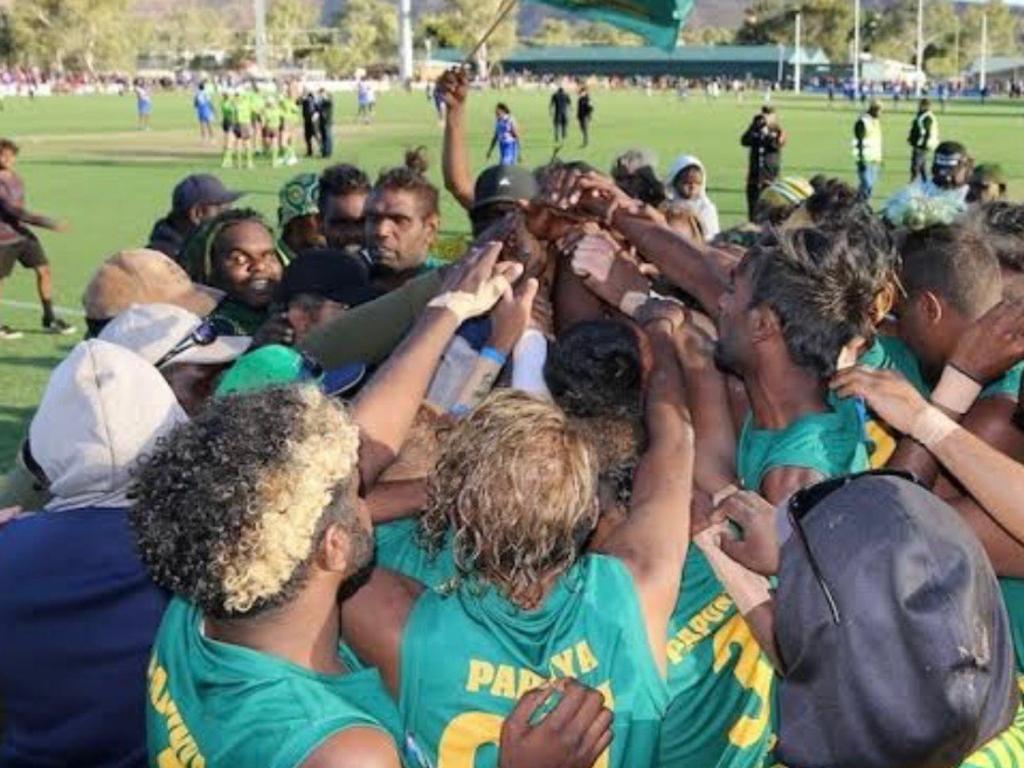
There were a number of “unfortunate” incidents at three community comp matches in September 2021, with local police later saying they wanted to “inject themselves” into the planning of future finals.
Police made five arrests for anti-social behaviour, seized several weapons, made two protective custody apprehensions and diverted multiple units to Traeger Park.
In a statement, council mayor Matt Paterson said the decision went beyond just anti-social behaviour.
“Yes, that factors into council’s decision-making process, and memories of extreme violence following the 2021 community league finals series show that those concerns are real,” Mr Paterson said.
“The decision has many layers on top of anti-social behaviour.”
Mr Paterson said the council would like to see more competition games played in remote communities, as families travelling hundreds of kilometres to Alice Springs for Sunday fixtures often resulted in children not attending school early the following week.
He said holding games in remote communities would keep money in the local economy but more funding needed to be spent on upgrading existing facilities: “The example of the beautiful oval in Santa Teresa is a shining example of how this can work.”
Peak body AFLNT committed to running community football competition
Organisers of a community footy competition remain “committed” to running the 2023 season, despite negotiations so far failing to bring Alice Springs Town Council back on its side.
At their last general meeting, councillors voted to withdraw support for the Central Australian Football League’s community competition – which typically draws hundreds of bush players into town – being held on council-owned venues.
Councillor and Alyawerre man Michael Liddle moved the motion on concerns the competition caused anti-social behaviour in the town.
With the competition due to start in early May, head of AFLNT Sam Gibson said the organisation was still working through the CAFL fixture.
Mr Gibson said games could still be scheduled in Alice Springs this year based on a pre-existing agreement to play at the council-owned Traeger Park.
“This work factors in potential scheduling in communities where safe and practical, as well as Alice Springs, in line with the current license agreement between AFLNT and Alice Springs Town Council for Traeger Park, which is due to expire in 2025,” he said.
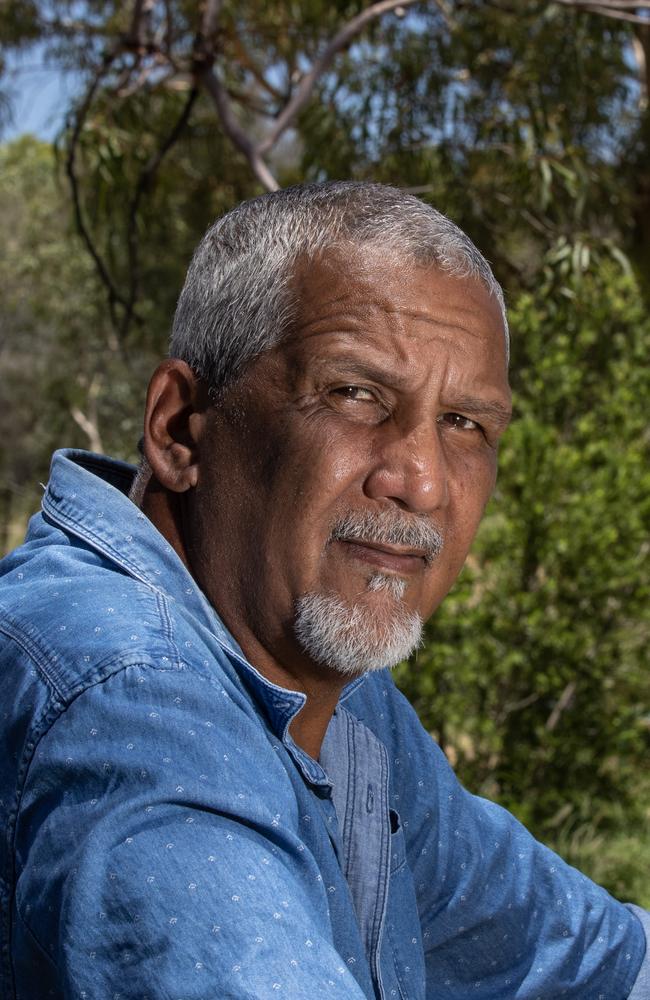
However Mr Liddle said council had made a “stance”.
“It won’t go ahead in Alice Springs this year,” he said.
“We have to protect ratepayers and people who contribute to the economy.
“It’s not a banning or cancelling, it’s a plain and simple pausing, and it’s going to take a year of negotiations to get our ducks lined up, to find out what works.”
It comes after AFLNT held crisis talks in Alice Springs last week.
“Productive discussions took place throughout the meeting and there is a clear willingness from stakeholders to continue to explore what’s best for the game and the people in the region, including how fixtures work in Alice Springs and remote communities,” Mr Gibson said.
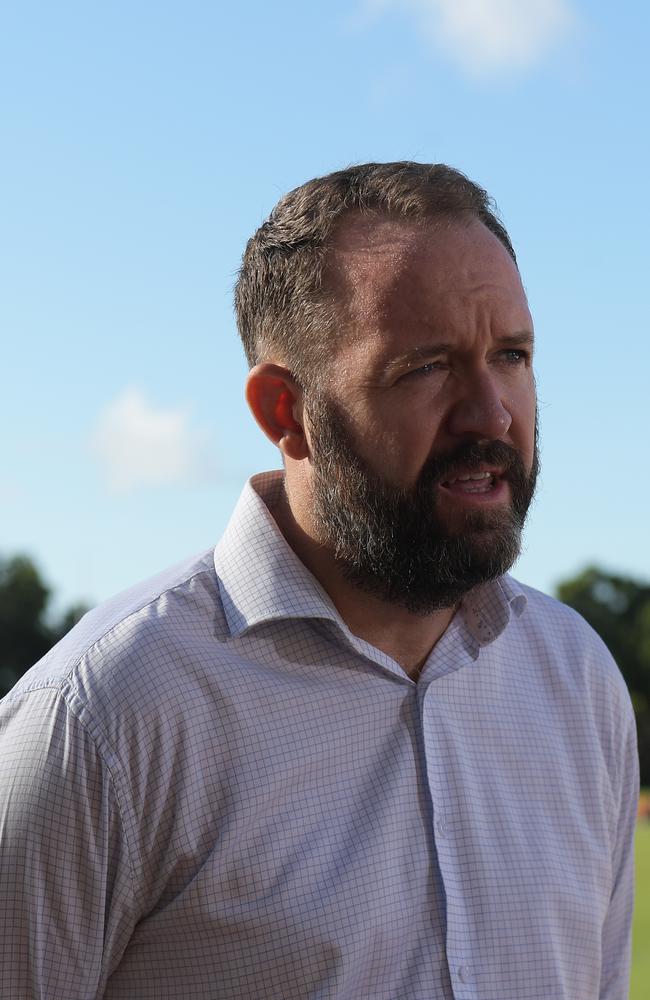
Mr Liddle said AFLNT and government bureaucrats were not respecting the council’s decision nor the wishes of players to play in their communities.
“They’re not addressing issues to communities and nowhere in this dialogue is there a conversation happening about people’s behaviour when community football happens in Alice Springs,” he said.
“Emergency services are under extreme pressure, businesses are closing up and leaving town.
“Football is the biggest Band-Aid solution I know of, and we are tired of Band-Aid solutions.”
Mayor Matt Paterson said AFLNT, the government and other stakeholders had not addressed an infrastructure deficit in remote communities for “far too long”.
“A competition that is contingent on the use of grounds that are more than 300km away from competing communities is clearly not a sustainable model,” Mr Paterson said.
“ASTC cannot be held accountable for the lack of planning around football.
“There has been a lack of drive from AFLNT to have a serious discussion about how to make community football happen on community.”




